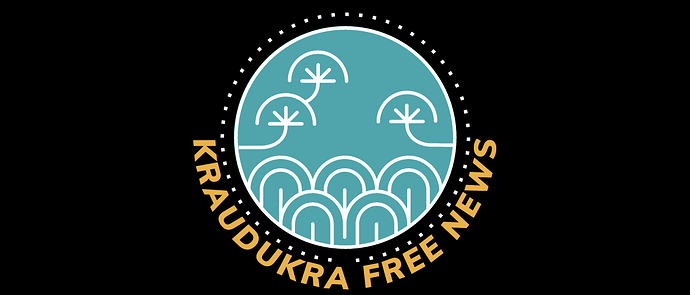Renkara Under Fire: Krauanagaz Grapples with Economic Crisis and Rising Unrest
Alkantara, Krauanagaz — Krauanaet Thalira Renkara, once hailed as a beacon of hope for a nation weary of war and political corruption, is now grappling with a series of domestic crises that threaten to undermine her administration. From economic instability to rising public discontent, Renkara’s leadership is being tested like never before as Krauanagaz navigates the fallout from the ongoing Gulf War and internal strife.
The Gulf War and its disruption of trade routes have all but crippled the Krauanagazan economy. Inflation has soared to record levels, and shortages of essential goods, including fuel, food staples, and medical supplies, have left many citizens struggling to meet basic needs.
The government’s decision to impose rationing in several provinces, including Kevpríg, Zhzoatal, and Krautallaz, has sparked widespread protests. Thousands of demonstrators in cities such as Tatallap and Alkantara have criticized the administration for prioritizing military operations over domestic stability.
“I can’t feed my children, but the government can fund a war? Where is the justice in that?” asked a frustrated protester during a recent demonstration in Tatallap.
Unemployment has skyrocketed to 22.1%, with small businesses closing in droves due to supply chain disruptions. The agricultural sector, already strained by drought and environmental degradation, has been further devastated by the war’s impact on transportation and logistics.
The rural populace, particularly in the hard-hit Prital and Krauana regions, has voiced growing resentment toward the federal government. Community leaders in these areas have accused the administration of abandoning their needs in favor of urban elites and what critics of the war have begun to call the “military-industrial complex.”
Anti-war activist and organizer, Kori Falakar says the Krauanagazan government has, “fallen prey to the nation’s armed forces, defense contractors, and corrupted political institutions.” Falakar says this tacit relationship drives increased military spending and influences government policy to prioritize defense interests.
Renkara’s coalition, once seen as a strong force for progressive reform, is now showing signs of fracture. Discontent among members of her party, Demands of the People (SV), has grown, with some calling for new leadership to address mounting economic and social grievances.
The Left Coalition (LI), led by Taaayya Lithin, has seized the opportunity to criticize Renkara’s handling of both the economy and national security. Lithin has accused the Krauanaet of being disconnected from the struggles of ordinary Krauanagazans, demanding a “complete restructuring” of the government’s policies.
Even some moderates within the coalition (LI-SV) have expressed concern over the administration’s perceived failure to address anti-immigrant sentiment and the ongoing refugee crisis, which continues to strain provincial governments.
Opposition parties have framed upcoming local and provincial elections as a de facto referendum on Renkara’s leadership. “This government has lost its way,” Lithin declared during a rally in Alkantara. “We need a government that puts the people first, not endless wars and unchecked corruption.”
Despite efforts to broker peace, security concerns continue to plague Krauanagaz. While a tenuous ceasefire holds in Kevpríg Province, northern regions are still beset by militant violence. A recent bombing at a crowded marketplace in Krautallaz claimed dozens of lives, highlighting the government’s struggle to maintain order.
Militant groups like Red K and the Messengers of Tallaz (MOT) remain active threats, despite Renkara’s concessions aimed at reducing violence. Security analysts warn that the ceasefire agreements may have emboldened these groups rather than neutralizing their influence.
Meanwhile, international relations remain strained as the Gulf War grinds on. The ongoing occupation of Aka Island by Zuhlgani forces has fueled nationalist rhetoric in Krauanagaz, with critics accusing Renkara of failing to defend national sovereignty.
The fallout from the Federal Defense Intelligence Agency (FDIA) torture probe that haunted the Zharan administration, continues to haunt Renkara’s administration. Allegations of unlawful detentions and torture have eroded public trust in the government. While Renkara has publicly supported the investigation, critics argue that her administration has not done enough to hold high-ranking officials accountable. Although Renkara has no legal authority over the pace of the investigation, or charges resulting from it.
Human rights organizations, both domestic and international, have condemned the FDIA’s actions, calling for greater transparency and accountability. The scandal has become a rallying point for anti-government protests and opposition movements.
Public opinion polls show a sharp decline in support for Renkara, with many citizens expressing frustration over her perceived inability to address the nation’s pressing issues. The Krauanaet’s approval ratings have plummeted to their lowest levels, 47.7%, since she took office, raising questions about her political future.
Protests and strikes are becoming increasingly common, with many calling again for early elections or a complete restructuring of the government. Renkara’s opponents have capitalized on this discontent, framing upcoming local and provincial elections as a referendum on her leadership.
In a recent address to the nation, Renkara acknowledged the challenges facing Krauanagaz but urged citizens to remain patient. “These are difficult times, but we must stay united,” she said. “The path to peace and stability is long, but we will not waver in our commitment to building a better future for all Krauanagazans.”
As Krauanagaz approaches a critical juncture, the pressure on Renkara’s administration continues to mount. The upcoming provincial and local elections will be a key test of her leadership, with the potential to either reinforce her mandate or further weaken her position. Meanwhile, the Gulf War and the refugee crisis show no signs of abating, leaving Renkara with little room for error.
For now, the Krauanaet remains determined to weather the storm, but the road ahead is far from clear. As one political analyst put it, “Renkara’s ability to navigate these crises will determine not only her political fate but also the future of Krauanagaz itself.”
